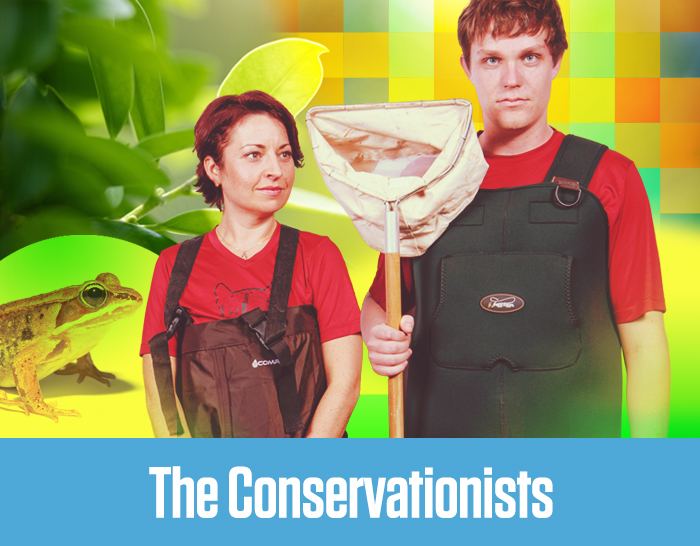Notice of Online Archive
This page is no longer being updated and remains online for informational and historical purposes only. The information is accurate as of the last page update.
For questions about page contents, contact the Communications Division.
Megan Rothenberger '02, associate professor of biology and environmental science & studies, and Will Pfadenhauer '20, environmental science and studies

Rothenberger knows the power of mentorship. When she was a Lafayette biology major, she received guidance from faculty mentors who helped her identify her passion for conservation biology. Today, as a Lafayette faculty member, she’s inspiring the next generation of scientists. Pfadenhauer is one of them.
When Pfadenhauer joined Rothenberger’s “lab family” in 2018, he expressed interest in investigating the impact light pollution has on wildlife. While Pfadenhauer’s idea builds upon previous work done in the lab (one of Rothenberger’s research interests entails monitoring vernal pools, important amphibian habitats), it was a novel proposition. “Usually students who join my lab take a little nibble in a new direction, but Will took a big bite,” Rothenberger says. “I hadn’t done anything with artificial light at all. His work has enabled us to take our amphibian conservation research in a new direction.”
A core part of their work is data collection: Each month, on the new moon, they travel to 18 different study sites in the Lehigh Valley to collect light data, a process that can take up to four hours. They also are developing wood frogs in the lab; in the spring, they will study how this vernal pool species reacts to varying levels of light pollution.
“Artificial light at night is a really pressing and important topic that we still know relatively little about,” Pfadenhauer says. “No one has established a sound method for simulating artificial light at night from natural environments in a laboratory setting, and I’m hopeful the method I’ve designed for this will be successful. Anytime you have a chance to do research in this field, it’s not just an opportunity to learn more about what you’re studying, it’s also a chance to become a better scientist, thinker, and environmental steward.”
Pfadenhauer plans to go to grad school with the ambition of one day becoming a professor—just like his mentor.
Read about other STEM Stars.
